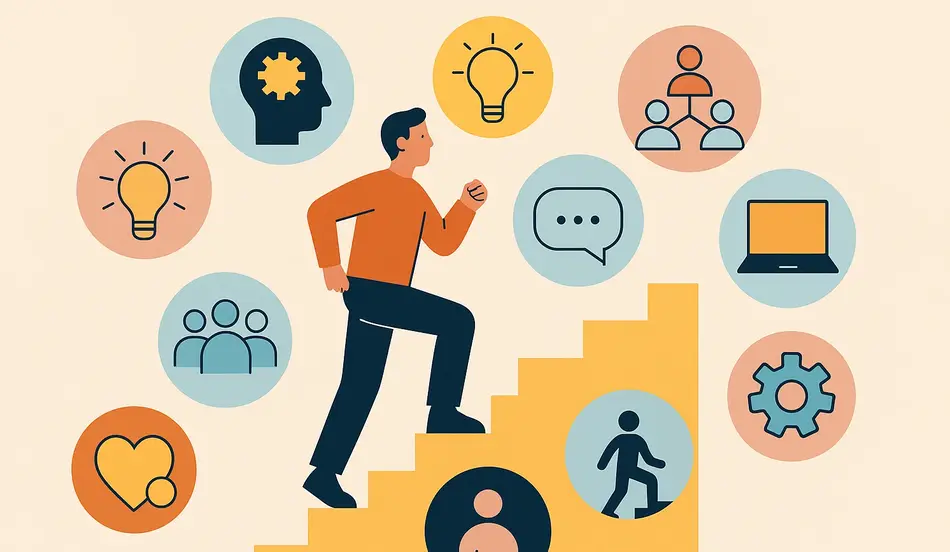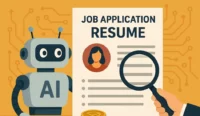Introduction: The Power of Personal Development in Today’s World
In a rapidly evolving global landscape where technology transforms industries overnight, the most valuable assets aren’t specific technical abilities—they’re foundational personal skills that enable lifelong growth and adaptation. While coding, AI expertise, and business acumen certainly have their place, true success in the 21st century demands something more fundamental: the development of core personal competencies that transcend specific industries and roles.
This comprehensive guide explores the essential skills for success that will serve as your foundation for thriving in an increasingly complex world. Drawing from expert insights, we’ll examine how mastering these critical abilities can transform your career trajectory and personal fulfillment.
The Social Intelligence Advantage: People Skills as Technical Skills
Why Social Skills Must Be Treated as Learnable Competencies
One of the most profound misconceptions in professional development is the belief that social abilities are innate rather than learned. Many assume you’re either born with “people skills” or you’re not. This fundamental error prevents countless talented individuals from reaching their full potential.
Social intelligence is an essential skill for success that requires deliberate practice and development. As highlighted by experts at the Harvard Business Review, social competence is increasingly recognized as a critical factor in professional advancement, often outweighing technical expertise in determining career trajectory.
The Components of Advanced Social Intelligence
Developing social intelligence involves several interconnected abilities:
- Empathetic perception: The capacity to recognize others’ emotional states and needs
- Adaptive communication: Tailoring your message to different personalities and contexts
- Constructive feedback: Delivering criticism that motivates rather than deflates
- Collaborative problem-solving: Finding solutions that incorporate diverse perspectives
Without these essential skills for success in your professional toolkit, even extraordinary technical abilities can be neutralized by interpersonal friction. The world’s most brilliant coder, analyst, or strategist will struggle to implement their ideas if they can’t effectively collaborate with others.
Practical Steps for Developing Social Intelligence
To cultivate this essential skill for success:
- Minimize screen time and maximize face-to-face interactions
- Practice active listening without planning your response
- Seek diverse social environments outside your comfort zone
- Request honest feedback about your interpersonal blind spots
- Study successful communicators and analyze their techniques
By approaching social intelligence as a technical skill requiring deliberate practice, you transform what many consider an innate trait into a learnable competence—one of the most powerful essential skills for success in your professional arsenal.
The Learning Advantage: Cultivating Intellectual Curiosity
Why a Love of Learning Drives Career Longevity
Perhaps the most essential skill for success in the 21st century is developing a genuine passion for learning itself. In an economy where specific technical skills can become obsolete within years or even months, the ability to continuously acquire new knowledge represents the ultimate competitive advantage.
This isn’t merely about professional necessity—it’s about finding joy in the growth process itself. When learning becomes intrinsically rewarding rather than merely instrumental, you unlock sustainable motivation that powers decades of professional development.
The Psychology of Effective Learning
Research from the World Economic Forum indicates that successful lifelong learners share several psychological characteristics:
- They experience genuine excitement when mastering new abilities
- They focus on incremental improvement rather than immediate perfection
- They connect learning to personal interests and values
- They celebrate small victories throughout the learning process
- They view challenges as opportunities rather than threats
Finding Your Learning Sweet Spot
The key to developing this essential skill for success lies in identifying domains where your natural interests intersect with valuable expertise. As the transcript notes, someone passionate about literature might struggle to maintain motivation while studying algebra, but could become fluent in French if driven by a desire to read original literary works.
This principle applies across all domains—the most sustainable learning happens when you connect new skills to existing passions. By strategically selecting learning projects that genuinely excite you, you transform education from obligation to opportunity.
The Patience Paradox: Embracing the Slow Path to Mastery
Why Impatience Undermines Skill Development
In our instant-gratification culture, patience has become one of the rarest yet most essential skills for success. The digital world has conditioned us to expect immediate results, creating a dangerous mismatch with the reality of skill acquisition, which inherently requires time and persistence.
This “patience paradox” explains why many abandon promising paths before reaching proficiency. The frustration of early incompetence—what experts call the “valley of disappointment”—filters out those unwilling to endure temporary discomfort for long-term growth.
The Neurological Case for Patience
According to research from MIT’s Brain and Cognitive Sciences Department, skill acquisition follows predictable neurological patterns requiring sustained practice over time. The brain physically restructures neural pathways during learning, a process that cannot be artificially accelerated beyond certain biological constraints.
This makes patience not merely a virtue but a neurological necessity—one of the truly essential skills for success in any complex endeavor. By understanding the biological basis for learning timelines, you can develop realistic expectations that prevent premature abandonment of valuable skill development.
Strategies for Cultivating Patience
To develop this essential skill for success:
- Deliberately practice delayed gratification in small daily decisions
- Document your learning progress to visualize incremental improvements
- Study the developmental timelines of experts you admire
- Embrace the concept of “deliberate practice” over passive experience
- Find communities that normalize and support long-term skill development
Embracing Productive Discomfort: The Boredom-Anxiety Spectrum
The Value of Constructive Boredom
Counter-intuitively, boredom represents one of the most essential skills for success in the modern economy. The ability to tolerate and even leverage periods of low stimulation creates space for deep work, creative connections, and sustained attention—all increasingly rare and valuable cognitive states.
Research from the American Psychological Association suggests that periodic boredom triggers the default mode network in the brain, activating creative problem-solving and novel idea generation. By developing comfort with boredom, you access mental resources unavailable during constant stimulation.
Anxiety Management as Professional Asset
At the opposite end of the comfort spectrum, anxiety management represents another essential skill for success. Major projects, entrepreneurial ventures, and creative works inevitably generate anxiety as you face uncertainty and potential failure.
Developing effective anxiety management strategies doesn’t mean eliminating these feelings, but rather:
- Recognizing anxiety as normal and informative
- Implementing specific calming techniques during high-stress periods
- Maintaining perspective on long-term objectives
- Using structured planning to convert anxiety into actionable steps
- Building support systems for emotional regulation
The Skill of Emotional Self-Regulation
Together, these capabilities form the broader essential skill for success of emotional self-regulation—the ability to maintain productive mental states despite internal and external pressures. This skill enables you to work effectively under conditions that derail less emotionally regulated peers, creating significant competitive advantage in high-pressure environments.
The Mastery Formula: Combining Multiple Domains of Excellence
The Power of Skill Combinations
The ultimate career strategy involves developing proficiency in multiple complementary domains. While specialization has value, the most innovative and resilient professionals combine distinct skill sets to create unique professional identities.
This “skill intersection” approach represents one of the most powerful yet underutilized essential skills for success. By developing expertise in two or more complementary domains, you create a professional profile that’s both distinctive and difficult to replicate.
Finding Your Unique Skill Combination
Effective skill pairing requires strategic selection of complementary domains. Consider developing expertise in combinations like:
- Technical knowledge + communication skills
- Creative abilities + business acumen
- Data analysis + visual storytelling
- Industry expertise + teaching ability
- Traditional skills + emerging technologies
The specific combination matters less than ensuring your selected domains genuinely interest you and create value when combined. This intersection strategy represents one of the most essential skills for success in creating a distinctive professional identity.
Practical Applications: Implementing These Skills in Daily Life
Daily Habits That Build Essential Skills
Transforming these concepts into practical habits is critical for developing essential skills for success. Consider implementing these daily practices:
- Social intelligence development:
- Schedule one meaningful conversation daily
- Practice active listening without interruption
- Seek feedback on your communication style
- Observe effective communicators and analyze their techniques
- Learning passion cultivation:
- Dedicate 30 minutes daily to learning something new
- Document your progress to visualize improvement
- Connect with communities passionate about your learning areas
- Celebrate small victories in your learning journey
- Patience strengthening:
- Practice delayed gratification in small daily decisions
- Set longer-term goals with defined milestones
- Study the developmental timelines of experts you admire
- Implement “deep work” sessions without digital interruptions
- Emotional regulation:
- Practice mindfulness meditation to build awareness of emotional states
- Develop specific routines for managing anxiety triggers
- Create healthy boundaries around digital stimulation
- Build support systems for emotional regulation
FAQ: Essential Skills for Success
What are the most important skills to develop for career success in the 21st century?
The most essential skills for success in today’s economy include social intelligence, a passion for continuous learning, patience during skill acquisition, emotional self-regulation, and the ability to combine multiple domains of expertise. While technical skills remain valuable, these foundational capabilities enable adaptation to changing circumstances and sustainable career growth regardless of industry disruptions.
How can I develop better social skills if I’m naturally introverted?
Social intelligence is an essential skill for success regardless of personality type. Introverts can develop this capability by starting with structured social situations, preparing conversation topics in advance, practicing active listening, seeking feedback from trusted friends, and gradually expanding their comfort zone. Remember that social skills are learned abilities, not fixed traits—even the most introverted person can develop strong interpersonal capabilities through deliberate practice.
How do I find the motivation to learn things that don’t immediately interest me?
Developing a love of learning as an essential skill for success often requires connecting seemingly uninteresting topics to your existing passions or long-term goals. Try finding applications of the subject that relate to your interests, breaking the material into smaller, more manageable segments, rewarding yourself for progress, studying with others who find the topic engaging, or exploring different learning formats that might better match your learning style.
How long does it typically take to master a new professional skill?
The timeline for developing any essential skill for success varies significantly based on complexity, prior experience, practice consistency, and natural aptitude. However, research on expertise development suggests that meaningful proficiency typically requires 100-200 hours of deliberate practice, while true mastery often demands 1,000+ hours. Rather than focusing exclusively on the endpoint, develop patience by celebrating incremental improvements and maintaining consistent practice schedules.
Conclusion: The Compound Effect of Essential Skills
The development of these essential skills for success creates a compound effect over time. Each capability reinforces and amplifies the others—social intelligence creates learning opportunities, learning passion drives skill development, patience enables mastery, emotional regulation supports consistent performance, and skill combinations create unique value.
By approaching these foundational abilities as learnable skills rather than fixed traits, you transform personal development from a vague aspiration into a structured practice. The result is not just professional advancement but a more fulfilling relationship with work itself—where growth becomes intrinsically rewarding rather than merely instrumental.
In a world obsessed with specific technical capabilities that may become obsolete, these timeless essential skills for success represent your most valuable and durable professional assets. By investing in their development, you create not just a more resilient career but a more engaged and meaningful professional life.






